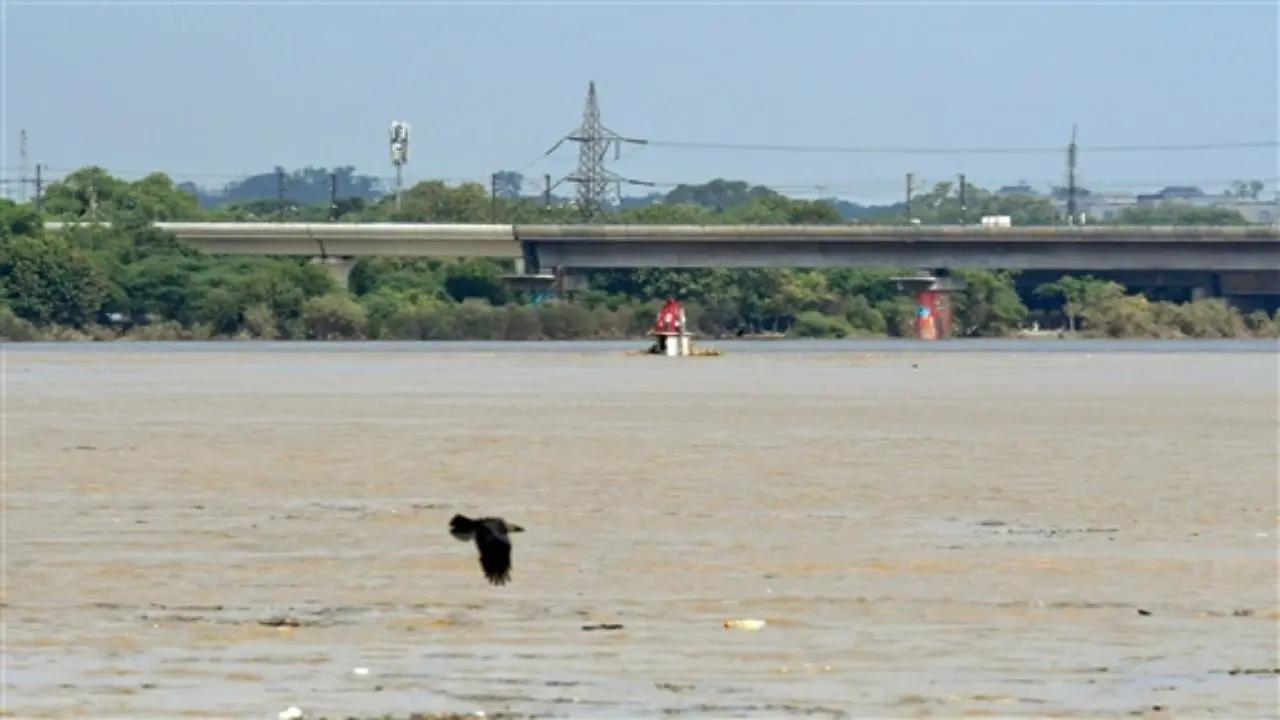The Delhi government is setting up 32 online monitoring stations along the heavily polluted Yamuna river and its open drains to access real-time data on pollutants.

Yamuna river/ PTI
The Delhi government has initiated the process of setting up 32 online monitoring stations along the Yamuna and various open drains flowing into it to access real-time data on pollutants entering the heavily polluted river, officials said on Monday.
ADVERTISEMENT
The Delhi Pollution Control Committee (DPCC) has to install 32 water quality monitoring systems for online monitoring of drains and Yamuna on different parameters, including biological oxygen demand, chemical oxygen demand, total suspended solids, total nitrogen (as nitrates and nitrites), total phosphorus, ammonia among others, The online monitoring stations (OLMS) are supposed to monitor the desired data online with a continuous data transmission facility to the server of DPCC in a 24X7 manner in exact compliance with the latest guidelines and standard operating procedures of the Central Pollution Control Board, they said.
A total of 32 OLMS, including 14 on Yamuna and 18 on different drain locations, are expected to be set up by the end of the year, a DPCC officer said, adding tender for the work has already been issued.
"It will help get real-time data on the quality of the water of drains and river locations, which can be viewed in the Command and Control Centre. This allows us to easily identify the location and time when conditions deteriorate," he said.
The proposed locations of OMLS are Palla, ISBT Bridge, ITO Bridge, Nizamuddin Bridge, Okhla Barrage, Najafgarh Drain, Metcalf House Drain, Khyber Pass Drain, Sweeper Colony Drain among others.
The online monitoring stations will also be set up on the drains carrying pollutants from other states like DD6 at Singhu Border (Sonipat), Bhadurgarh drains and the drains from Uttar Pradesh meeting Shahdara, Sahibabad and Banthia drains, they said.
The selected bidder company will be entrusted with the installation and commissioning of the electromagnetic equipment and run it on a trial basis for three months. It will operate and maintain the system for five periods after the trial run is complete, they said.
Delhi generates 792 million gallons of sewage a day (MGD). The 37 sewage treatment plants (STPs) in the capital have a combined capacity of 667 MGD.
According to government reports, the 22-km stretch of the Yamuna between Wazirabad and Okhla in Delhi, which is less than two per cent of the river’s entire length, accounts for around 80 per cent of its pollution load.
Untapped wastewater from unauthorised colonies and slum clusters along with the poor quality of treated wastewater discharged from STPs and common effluent treatment plants is the main reason for the high pollution levels in the river.
This story has been sourced from a third party syndicated feed, agencies. Mid-day accepts no responsibility or liability for its dependability, trustworthiness, reliability and data of the text. Mid-day management/mid-day.com reserves the sole right to alter, delete or remove (without notice) the content in its absolute discretion for any reason whatsoever
 Subscribe today by clicking the link and stay updated with the latest news!" Click here!
Subscribe today by clicking the link and stay updated with the latest news!" Click here!







